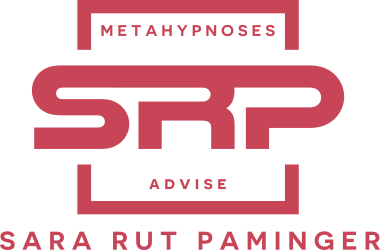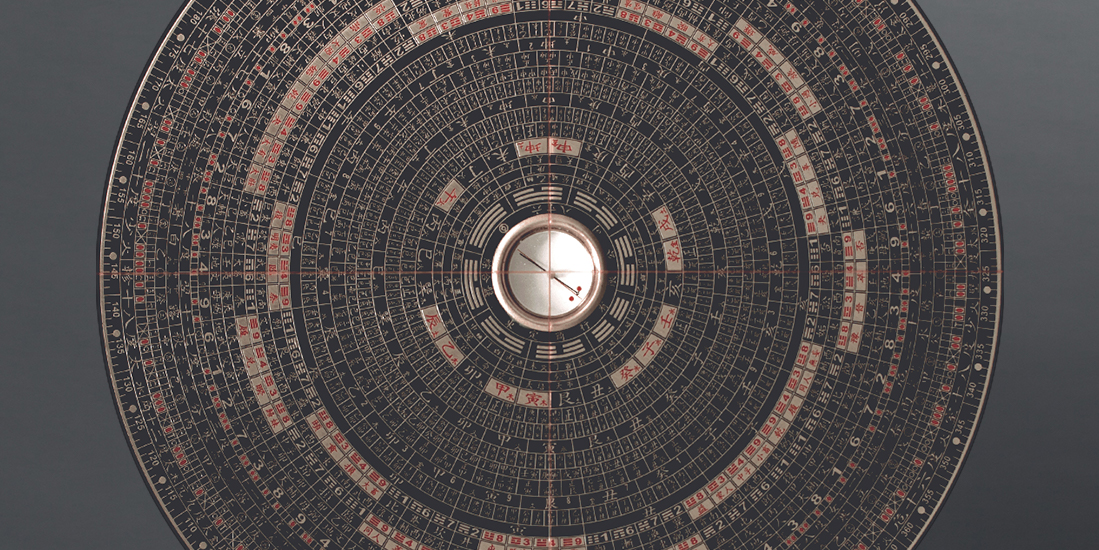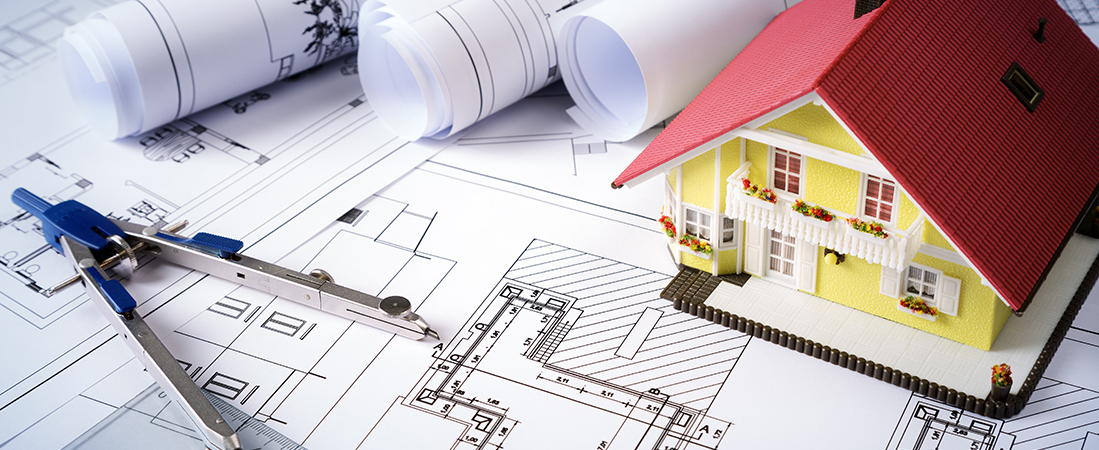
. Classical Feng Shui
Feng Shui is a sophisticated system of formulas and calculations originating from China, which examines the interrelations and correlations between the environment and the human being. Feng Shui is a tool to create equilibrium between the environment, man, time and space. Do you live in a house that enhances the quality of your life? Are you healthy? Do you feel satisfied and rewarded with your work? If the answer is “yes” – congratulations, most probably Feng Shui supports you. If the answer is “no” – read on, the results can be remarkable.
 scroll
scroll
-
What is
Feng Shui More
More
Traditional Feng Shui is an ancient system based on observation of the celestial forces – time and earthly forces – and the space inside a building and its surroundings, with consideration of the mutual interaction between their energies. Feng Shui is a science and has been used in China since the Tang Dynasty (618–907). Nowadays is practised by both Eastern and Western civilisations as a tool to create balance between the environment, man, time and space.
Feng Shui is the result of Chinese respect towards nature. The Chinese believe that if they reflect the balance of nature in their own lives, their living conditions would become more harmonious as well.
The main idea of Feng Shui is to master and understand the natural energy of the environment, which affects a building or location, and then using it to achieve human goals. The Chinese proverb says that the hierarchy of life is based on the following order: destiny, happiness, Feng Shui, virtues and education. Feng Shui is, therefore, a powerful force in the creation of our destiny and it is also a part of a multidimensional system. With good Feng Shui your health condition may improve, the circumstances to improve your financial situation can occur, and your career will gain momentum, but you will still need to look for favourable coincidences through individual efforts and activities. Everyone should understand that Feng Shui is not magic: if you do not have the potential to be super rich then Feng Shui will not make you a billionaire. It can, however, help to improve your current situation much faster and ensure its stability in the future.
Traditional Feng Shui (wind and water) is:
- a science using knowledge in the fields of geography, topography and landscape, as well as in the fields of architecture and spatial planning
- a science whose reliable application is based on strictly defined formulas, calculations and their interpretations resulting from the Luo Pan Compass
- a science that studies the external environment and the topography of the land, which allows the tracking of the flow of Qi energy
The attitude of Western people towards the power of Feng Shui is sometimes sceptical. They think it is more a superstition or a belief of ancient cultures or civilisations. If you are in this group of people, try to understand that Feng Shui really works, whether you believe it or not, and treat it as a tool or strategy that aims to make life better by creating a stable and strongly interacting environment, right next to you. This is the way Google, Apple and HSBC treat this science, which allows them to consolidate their own success.
And most importantly, Feng Shui is not a religion. It is a science that can be used effectively by any culture, regardless of religious beliefs.

Selected features of Traditional Feng Shui:
- the Luo Pan Compass – the main tool used for the measurement, interpretation and application of Feng Shui techniques (the Compass School)
- the Landscape School
- Yin and Yang – the opposing energy fields
- the Five Elements Theory: wood, fire, earth, metal, water, and their mutual relationship
- the Principle of Eight Trigrams and their interpretation
- the application of techniques such as San He, San Yuan, Ba Zhai and Xuan Kong Da Gua
- determining the compliance between a person and their home through birth date interpretation
The important factors in Feng Shui are location, direction, landform, the Qi energy and its flow. These define the quality of Feng Shui in relation to any property or the area.
Traditional Feng Shui is not:
- the art of object placement and choosing colours, which is known as New Age Feng Shui
- dividing your home according to the Eight Life Aspirations of career, knowledge, family, well-being, fame, marriage, children, friends and to have them matched to the Five Elements with consideration of the front door location
- preventive measures, such as crystals, mirrors, Ba Gua mirrors, red dots, ribbons, statues of frogs, cats, which are used to activate the Eight Life Aspirations
- the colour you use in the room; it is only important to maintain the balance between Yin and Yang, and dark colour should be in balance with light colour.
-
FENG SHUI RESIDENTIAL
 More
More
The mutual relationship between a home and its residents is similar to the relationship that connects them with a business partner or family. A flat or a house is like a personality we need to cooperate with. Some houses support their residents – others cause tension. Feng Shui can become an effective mediator in any dispute.

To what extent can Feng Shui be helpful?
By using Classical Feng Shui techniques such as San He, San Yuan, Ba Zhai, Xuan Kong Da Gua together with the date of birth of the residents, Feng Shui harmonises energy and introduces real changes in space, which in turn leads to:
- improvement of the residents’ health, well-being and general satisfaction levels
- financial stability
- strengthening of friendly interpersonal relationships and the harmonious coexistence of partners
- improvement of creativity, concentration and self-development
- positive development of children
The following four aspects are considered during Feng Shui consultation:
- the external environment
- the premises of the building
- the residents of the property
- the appropriate time
What is the course of a Feng Shui audit?

Feng Shui consultation is carried out in three stages: property assessment, analysis, a report with guidelines. Key areas in the house:
- the main entrance to the house or the most-used entrance – the houses’ mouth and the most important place through which external energy moves inward
- the bedroom – the place of rest where we spend at least 6–8 hours a day, or one-quarter to one-third of our whole life; if the energy here is disturbed, the consequences are felt throughout the house
- the kitchen – the cooker and its location in particular
- any other room in the house where we stay for longer periods of time; for example a home office generating financial means is very important
- the remaining parts of the premise and the surrounding area
What does the Feng Shui audit include?
- optimal space planning in order to remove existing problems (health, mutual relations or financial problems, etc.) and guidelines on how to improve their functionality
- the selection of suitable directions and locations for rest, work and leisure activities
- the recognition and direction of the energy flow in the house and the surrounding environment
- the optimal layout of the rooms used by the residents
- assessment of the house’s potential before it is purchased or rented
- the selection of an optimal plot for construction
- the assessment of the optimal use of space for terrain planning, orientation and architectural layout
- planning the most convenient time for moving, renovation, and activation of the locations and directions
- times when carrying out any activities in the house and in its surroundings is considered unfavourable
Feng Shui consultation is carried out with the use of the Luo Pan Compass.
-
FENG SHUI - OFFICES & COMMERCIAL SPACE
 More
More
The office location and surrounding environment considerably determines the successful development and profitability of a business. Classical Feng Shui has been used by the world’s largest organisations, such as IBM, HSBC, the Esplanade Theatre in Singapore, BMW, Nokia, Aurora in Melbourne, and Battersea and Wardian in London. Without any doubt, following Feng Shui guidelines is one of the most important reasons behind these companies’ global success.

Who benefit from a Feng Shui business consultation?
- offices, corporations, restaurants, stores, retail outlets, beauty salons, etc.
- home offices
- schools and hospitals
- large or small organisations
How can a Feng Shui audit be helpful?
Before entering into any business activity or during the company’s operation on the market (including issues related to the selection and planning of the site for the construction, purchase or rental of office space), the techniques of Feng Shui may contribute to the following:
- creating a dynamic and harmonious working environment
- improving the company’s efficiency and development
- profit growth
- improving the brand recognition
- increasing customer flow and brand loyalty
- increasing business partner relationships
- increasing energy and creativity
- raising productivity
- improving relations and harmonious cooperation between departments
- raising sales figures

What is the course of a Feng Shui audit?
Feng Shui consultation is carried out in three stages: property assessment, analysis, a report with guidelines.
The key aspects of Feng Shui consultation regarding offices and commercial space are as follows:
- assessment of an existing office or building location
- selection of the most appropriate location for a new office or building before it is purchased or rented
What will be assessed with regard to the existing office or building?
- the weak and strong points of the rooms with regard to the direction, location and energy flow
- layout and arrangement of the office space – main door, reception, rooms, location of the key departments and employees
- the appropriate location and direction for the cash register
- guidelines concerning the time period for renovation, changes within the existing space, and the organisation and location of important events
- the existing financial and organisational problems, including client–employee relationships
- date and time selection to make changes and to activate specific areas in the office
Feng Shui consultation is carried out with the use of the Luo Pan Compass.
-
FENG SHUI - ARCHITECTS & SPATIAL PLANNING
 More
More
In traditional Feng Shui, the construction and arrangement of a house or space is oriented towards long-term success. Feng Shui and its principles maximise the potential and value of a project from the beginning until completion. Feng Shui assesses not only the building itself but also the surrounding area, to achieve the best possible arrangement with a long-term benefit to the potential residents. In spatial planning, Feng Shui consultation is especially recommended before construction begins, while the site is being sought, and at the time of designing space with an architect, from the decision to start construction or interior design.

What is the process of a Feng Shui audit?
Feng Shui consultation is carried out in three stages: property assessment, analysis, a report with guidelines.
The most important aspects of Feng Shui in spatial planning and architectural projects are location and landscape, the building’s location, architectural design, directions according to which the buildings are located, location of the doors, rooms, etc.
The audit is carried out according to the classical methods of Feng Shui, such as San He, San Yuan, Ba Zhai, Xuan Kong Da Gua, with the use of the Luo Pan Compass.
Feng Shui consultation includes:
- the selection of the site – the assessment of the site and choice of the optimal solution to support all designated goals and achieve the expected results
- the specification of geographic directions – the selection of the optimal directions for the project
- time synchronisation – defining the start time of construction work and spatial planning
- planning new buildings and development of new investments – designing according to the most appropriate geographic directions, planning of the use of space in the building, arrangement of doors, rooms, kitchens, passageways, etc.
- planning a variety of investments such as the location of roads, parking lots, entrances and exits, spatial development, etc.
-
Traditional Feng Shui is an ancient system based on observation of the celestial forces – time and earthly forces – and the space inside a building and its surroundings, with consideration of the mutual interaction between their energies. Feng Shui is a science and has been used in China since the Tang Dynasty (618–907). Nowadays is practised by both Eastern and Western civilisations as a tool to create balance between the environment, man, time and space.
Feng Shui is the result of Chinese respect towards nature. The Chinese believe that if they reflect the balance of nature in their own lives, their living conditions would become more harmonious as well.
The main idea of Feng Shui is to master and understand the natural energy of the environment, which affects a building or location, and then using it to achieve human goals. The Chinese proverb says that the hierarchy of life is based on the following order: destiny, happiness, Feng Shui, virtues and education. Feng Shui is, therefore, a powerful force in the creation of our destiny and it is also a part of a multidimensional system. With good Feng Shui your health condition may improve, the circumstances to improve your financial situation can occur, and your career will gain momentum, but you will still need to look for favourable coincidences through individual efforts and activities. Everyone should understand that Feng Shui is not magic: if you do not have the potential to be super rich then Feng Shui will not make you a billionaire. It can, however, help to improve your current situation much faster and ensure its stability in the future.
Traditional Feng Shui (wind and water) is:
- a science using knowledge in the fields of geography, topography and landscape, as well as in the fields of architecture and spatial planning
- a science whose reliable application is based on strictly defined formulas, calculations and their interpretations resulting from the Luo Pan Compass
- a science that studies the external environment and the topography of the land, which allows the tracking of the flow of Qi energy
The attitude of Western people towards the power of Feng Shui is sometimes sceptical. They think it is more a superstition or a belief of ancient cultures or civilisations. If you are in this group of people, try to understand that Feng Shui really works, whether you believe it or not, and treat it as a tool or strategy that aims to make life better by creating a stable and strongly interacting environment, right next to you. This is the way Google, Apple and HSBC treat this science, which allows them to consolidate their own success.
And most importantly, Feng Shui is not a religion. It is a science that can be used effectively by any culture, regardless of religious beliefs.

Selected features of Traditional Feng Shui:
- the Luo Pan Compass – the main tool used for the measurement, interpretation and application of Feng Shui techniques (the Compass School)
- the Landscape School
- Yin and Yang – the opposing energy fields
- the Five Elements Theory: wood, fire, earth, metal, water, and their mutual relationship
- the Principle of Eight Trigrams and their interpretation
- the application of techniques such as San He, San Yuan, Ba Zhai and Xuan Kong Da Gua
- determining the compliance between a person and their home through birth date interpretation
The important factors in Feng Shui are location, direction, landform, the Qi energy and its flow. These define the quality of Feng Shui in relation to any property or the area.
Traditional Feng Shui is not:
- the art of object placement and choosing colours, which is known as New Age Feng Shui
- dividing your home according to the Eight Life Aspirations of career, knowledge, family, well-being, fame, marriage, children, friends and to have them matched to the Five Elements with consideration of the front door location
- preventive measures, such as crystals, mirrors, Ba Gua mirrors, red dots, ribbons, statues of frogs, cats, which are used to activate the Eight Life Aspirations
- the colour you use in the room; it is only important to maintain the balance between Yin and Yang, and dark colour should be in balance with light colour.
-
The mutual relationship between a home and its residents is similar to the relationship that connects them with a business partner or family. A flat or a house is like a personality we need to cooperate with. Some houses support their residents – others cause tension. Feng Shui can become an effective mediator in any dispute.

To what extent can Feng Shui be helpful?
By using Classical Feng Shui techniques such as San He, San Yuan, Ba Zhai, Xuan Kong Da Gua together with the date of birth of the residents, Feng Shui harmonises energy and introduces real changes in space, which in turn leads to:
- improvement of the residents’ health, well-being and general satisfaction levels
- financial stability
- strengthening of friendly interpersonal relationships and the harmonious coexistence of partners
- improvement of creativity, concentration and self-development
- positive development of children
The following four aspects are considered during Feng Shui consultation:
- the external environment
- the premises of the building
- the residents of the property
- the appropriate time
What is the course of a Feng Shui audit?

Feng Shui consultation is carried out in three stages: property assessment, analysis, a report with guidelines. Key areas in the house:
- the main entrance to the house or the most-used entrance – the houses’ mouth and the most important place through which external energy moves inward
- the bedroom – the place of rest where we spend at least 6–8 hours a day, or one-quarter to one-third of our whole life; if the energy here is disturbed, the consequences are felt throughout the house
- the kitchen – the cooker and its location in particular
- any other room in the house where we stay for longer periods of time; for example a home office generating financial means is very important
- the remaining parts of the premise and the surrounding area
What does the Feng Shui audit include?
- optimal space planning in order to remove existing problems (health, mutual relations or financial problems, etc.) and guidelines on how to improve their functionality
- the selection of suitable directions and locations for rest, work and leisure activities
- the recognition and direction of the energy flow in the house and the surrounding environment
- the optimal layout of the rooms used by the residents
- assessment of the house’s potential before it is purchased or rented
- the selection of an optimal plot for construction
- the assessment of the optimal use of space for terrain planning, orientation and architectural layout
- planning the most convenient time for moving, renovation, and activation of the locations and directions
- times when carrying out any activities in the house and in its surroundings is considered unfavourable
Feng Shui consultation is carried out with the use of the Luo Pan Compass.
-
The office location and surrounding environment considerably determines the successful development and profitability of a business. Classical Feng Shui has been used by the world’s largest organisations, such as IBM, HSBC, the Esplanade Theatre in Singapore, BMW, Nokia, Aurora in Melbourne, and Battersea and Wardian in London. Without any doubt, following Feng Shui guidelines is one of the most important reasons behind these companies’ global success.

Who benefit from a Feng Shui business consultation?
- offices, corporations, restaurants, stores, retail outlets, beauty salons, etc.
- home offices
- schools and hospitals
- large or small organisations
How can a Feng Shui audit be helpful?
Before entering into any business activity or during the company’s operation on the market (including issues related to the selection and planning of the site for the construction, purchase or rental of office space), the techniques of Feng Shui may contribute to the following:
- creating a dynamic and harmonious working environment
- improving the company’s efficiency and development
- profit growth
- improving the brand recognition
- increasing customer flow and brand loyalty
- increasing business partner relationships
- increasing energy and creativity
- raising productivity
- improving relations and harmonious cooperation between departments
- raising sales figures

What is the course of a Feng Shui audit?
Feng Shui consultation is carried out in three stages: property assessment, analysis, a report with guidelines.
The key aspects of Feng Shui consultation regarding offices and commercial space are as follows:
- assessment of an existing office or building location
- selection of the most appropriate location for a new office or building before it is purchased or rented
What will be assessed with regard to the existing office or building?
- the weak and strong points of the rooms with regard to the direction, location and energy flow
- layout and arrangement of the office space – main door, reception, rooms, location of the key departments and employees
- the appropriate location and direction for the cash register
- guidelines concerning the time period for renovation, changes within the existing space, and the organisation and location of important events
- the existing financial and organisational problems, including client–employee relationships
- date and time selection to make changes and to activate specific areas in the office
Feng Shui consultation is carried out with the use of the Luo Pan Compass.
-
In traditional Feng Shui, the construction and arrangement of a house or space is oriented towards long-term success. Feng Shui and its principles maximise the potential and value of a project from the beginning until completion. Feng Shui assesses not only the building itself but also the surrounding area, to achieve the best possible arrangement with a long-term benefit to the potential residents. In spatial planning, Feng Shui consultation is especially recommended before construction begins, while the site is being sought, and at the time of designing space with an architect, from the decision to start construction or interior design.

What is the process of a Feng Shui audit?
Feng Shui consultation is carried out in three stages: property assessment, analysis, a report with guidelines.
The most important aspects of Feng Shui in spatial planning and architectural projects are location and landscape, the building’s location, architectural design, directions according to which the buildings are located, location of the doors, rooms, etc.
The audit is carried out according to the classical methods of Feng Shui, such as San He, San Yuan, Ba Zhai, Xuan Kong Da Gua, with the use of the Luo Pan Compass.
Feng Shui consultation includes:
- the selection of the site – the assessment of the site and choice of the optimal solution to support all designated goals and achieve the expected results
- the specification of geographic directions – the selection of the optimal directions for the project
- time synchronisation – defining the start time of construction work and spatial planning
- planning new buildings and development of new investments – designing according to the most appropriate geographic directions, planning of the use of space in the building, arrangement of doors, rooms, kitchens, passageways, etc.
- planning a variety of investments such as the location of roads, parking lots, entrances and exits, spatial development, etc.
SRP METAHYPNOSES ADVISE provides services within the scope of Clinical Hypnosis and Chinese Metaphysics offering support and advise in the field of health, human relationships, career and finance. I help the client extensively - through listening, conversation, observation, verification, explanation and analysis, so that a complete plan is developed for you and implemented in the real life.
With the use of therapeutic techniques of Clinical Hypnosis I support treatment of numerous psychological and physical ailments. Through the application of Ba Zi, Feng Shui and Qi Men Dun Jia I help to find the source of problems and improve the quality of your life. Each person is unique for me and requires an individual approach. I want everyone to feel better.

.Contact
Do you have a question about my services? Do you need more information? I am glad to provide you with the advice on your Hypnosis, Ba Zi, Qi Men Dun Jia and Feng Shui requirements.
 AE
+971 557 86 91 98
AE
+971 557 86 91 98
 PL
+48 783 121 388
PL
+48 783 121 388
Sara is a member of and registered hypnotherapist at the
- General Hypnotherapy Register (GHR)
and General Hypnotherapy Standards Council (GHSC) - Complementary and Natural Healthcare Council (CNHC) in the United Kingdom


_photoshop.png)
_photoshop.png)


